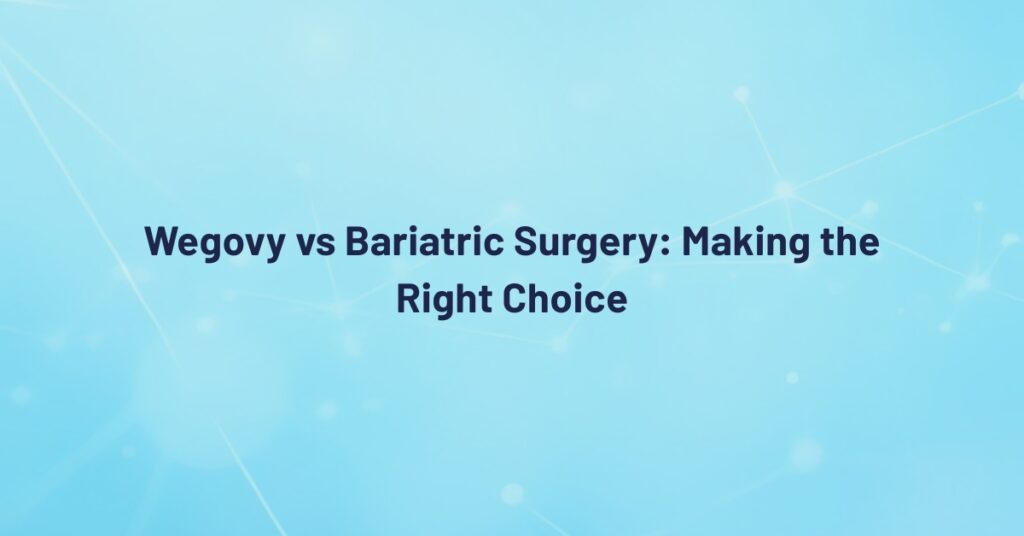Obesity increases the risk of type 2 diabetes, cardiovascular disease, sleep apnea, and osteoarthritis. Two proven interventions address it from different angles:
- Wegovy® (semaglutide 2.4 mg once weekly) – a glucagon‑like peptide‑1 (GLP‑1) receptor agonist that reduces appetite and delays gastric emptying.
- Metabolic/bariatric surgery – sleeve gastrectomy, gastric bypass, or other procedures that physically restrict intake and/or reduce absorption.
How much weight can you expect to lose?
| Intervention | Average total body‑weight loss | Key evidence |
|---|---|---|
| Bariatric surgery (sleeve, bypass) | ≈ 30 % at 1–2 years; ≈ 25 % at 10 years | American Society for Metabolic & Bariatric Surgery (ASMBS) clinical data https://asmbs.org |
| Wegovy (semaglutide 2.4 mg) | 14.9 % at 68 weeks | STEP 1 trial, N = 1,961 (https://www.nejm.org/doi/full/10.1056/NEJMoa2032183) |
Individual results vary. Lifestyle changes remain essential with either approach.
Pros & cons at a glance
Wegovy®
- Non‑surgical: no anesthesia or hospitalization.
- Adjustable & reversible: the dose can be titrated or stopped under medical guidance.
- Side‑effects: nausea, vomiting, constipation; rare but serious risks include pancreatitis and gallstones.
- Cost: list price ≈ US $1,300/month; insurance coverage varies.
Bariatric surgery
- Greater, durable weight loss: sustained 25 % loss a decade later; high remission rates for type 2 diabetes and obstructive sleep apnea.
- One‑time procedure: no ongoing injections, but life‑long vitamin/mineral supplementation is essential.
- Risks: bleeding, leakage, strictures (overall serious‑complication rate < 2 % in accredited centers) and potential nutritional deficiencies if follow‑up lapses.
- Coverage: most U.S. insurers cover surgery for BMI ≥ 40 kg/m² (or ≥ 35 kg/m² with comorbidities).
Lifestyle commitment
The driver of long‑term success is not the procedure or prescription alone but the habits that follow:
- Nutrition – protein‑forward, nutrient‑dense meals and avoidance of sugar‑sweetened beverages.
- Physical activity – at least 150 minutes/week of moderate activity plus resistance training.
- Monitoring – quarterly visits and labs for Wegovy users; annual micronutrient panels for surgical patients.
Who should consider which option?
| Choose Wegovy if… | Choose surgery if… |
| You prefer a non‑invasive approach or have contraindications to anesthesia. | Your BMI is ≥ 40 kg/m² (or ≥ 35 kg/m² with serious comorbidities) and you want the most potent, durable weight loss. |
| You’re comfortable with weekly injections and potential long‑term medication use. | You want a one‑time intervention and are ready for lifelong supplementation and follow‑up. |
| Your insurance covers GLP‑1 therapy but not surgery. | Your insurance covers bariatric surgery or you can self‑finance a fixed‑price package. |
Why Colorado Bariatric Surgery Institute (CBSI)?
- Wanda M. Good, DO, FACS, FASMBS – fellowship‑trained robotic surgeon.
- Robotic sleeve gastrectomy & gastric bypass with the da Vinci® platform for precise, minimally‑invasive surgery and shorter recovery.
- Multidisciplinary care – dietitians, exercise physiologists, psychologists, and peer support groups.
- Free insurance verification – https://www.coloradobariatric.com/patient-resources/billing-insurance/
- Cash‑pay options – transparent, all‑inclusive pricing for uninsured or out‑of‑state patients.

